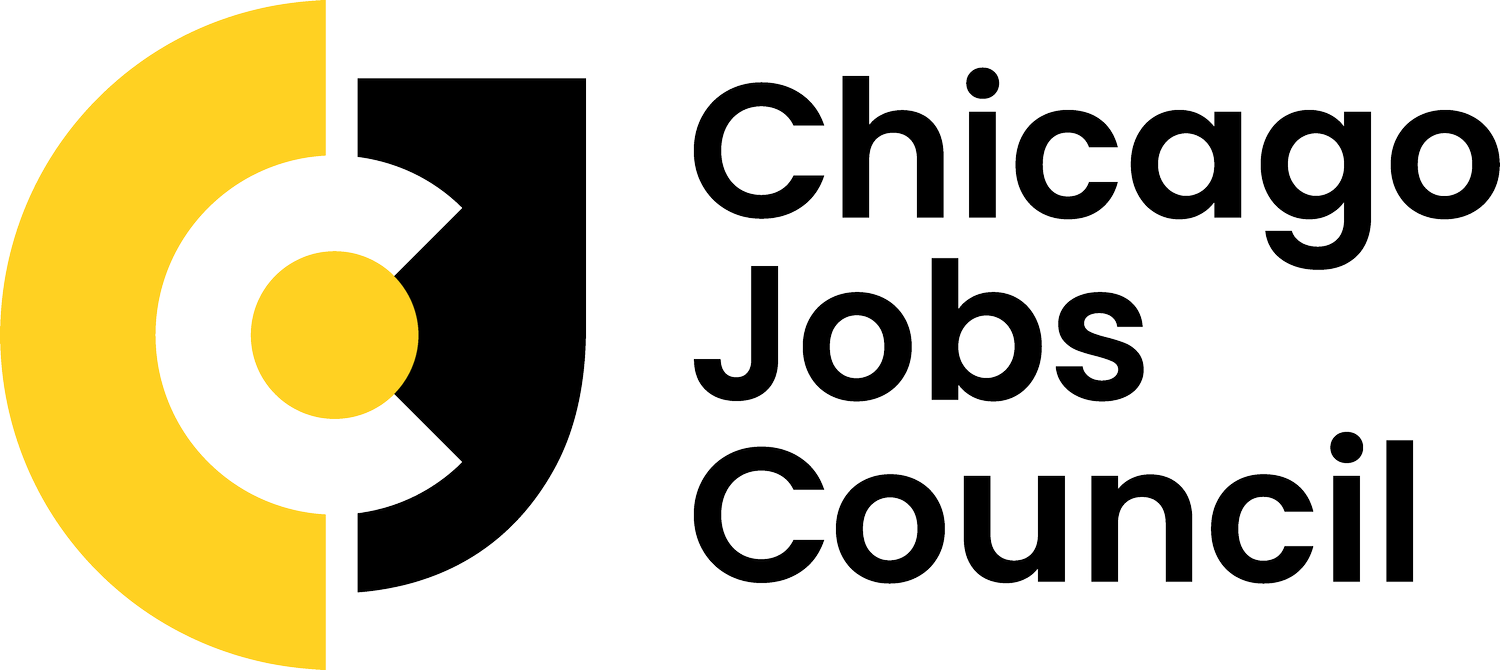The Future of Workforce Funding: Advocacy for Equity in Uncertain Times
With the start of the Illinois Spring Legislative Session and important state and federal budget decisions approaching, the future of workforce funding remains unclear. In the coming months, workforce development program funding will encounter new challenges and opportunities, particularly as federal lawmakers discuss reconciliation and appropriations bills.
For Chicago Jobs Council, this is a moment to stand firm in our commitment to creating an antiracist workforce development system that ensures access to quality jobs for all. At the same time, now more than ever, Illinois needs a Chief Workforce Officer (CWO) dedicated to overseeing workforce development and funding to work in concert with state economic development planning. Such a role is critical to ensuring cohesive strategies that address systemic barriers and elevate equitable opportunities for job seekers. Key legislative actions in the Illinois General Assembly and the United States Congress will profoundly impact the resources available to workforce development practitioners, the systems we influence, and, most importantly, the job seekers we serve.
Why Illinois Advocacy is Critical
Advocacy for workforce programs extends beyond federal discussions—it is also a state issue. With the ongoing threat of a federal funding freeze targeting organizations that support DEI efforts, the Illinois General Assembly must create a budget that is true to our values and ensure continued investment in critical state funding for workforce development and supportive services. The potential impacts of a federal funding freeze underscore the urgency of securing robust state-level workforce funding. The indefinite suspension of federal monies for programs places nonprofits, community-based organizations, and job seekers at significant risk of financial hardship.
This also has broader implications for local economies—job seekers cannot secure employment without available jobs, and employers will struggle without a reliable workforce. Considering the economic impact on both sides of the equation is essential. In this climate, state leaders must look to legislation such as Illinois' Climate and Equitable Jobs Act (CEJA), which was enacted in 2021. CEJA allocates $80 million for clean energy workforce development across Illinois. This landmark legislation offers two critical opportunities in today’s uncertain funding landscape:
A consistent funding source independent of federal control, ensuring ongoing workforce and economic development in Illinois.
A commitment to diversity and equity in the clean energy sector, prioritizing talent from Black and Brown communities and individuals facing high barriers to employment. CEJA specifically supports regions designated as environmental justice areas or Restore, Reinvest, and Renew (R3) areas, which experience high rates of violence, incarceration, and economic disinvestment.
With CEJA as a guiding framework and our continued advocacy for a CWO, the Chicago Jobs Council aims to amplify the voices of workforce practitioners, job seekers, and community-based organizations. Our goal is to ensure that equity and access remain at the heart of workforce development funding decisions.
Advocacy in Action: Key Areas to Watch
1. Federal Reconciliation Bills and Budget Cuts:
Congress is poised to pass reconciliation packages this spring, with significant risks to federal education and safety-net programs, including SNAP and TANF. These programs directly impact Illinois job seekers’ ability to access training, transportation, and childcare, which are essential supports for equitable workforce development.
2. Illinois State Budget:
The Illinois budget must prioritize investments in skills training programs, community colleges, and workforce innovation. By leveraging workforce programs to address disparities in employment and wages, policymakers can expand resources for underserved communities.
3. Federal Appropriations:
With the federal government’s current funding bill set to expire on March 14, 2025, the next steps in Washington will directly influence Illinois’ ability to maintain or expand workforce initiatives. Cuts at the federal level could result in reduced state funding, making Illinois advocacy efforts even more critical.
A Call to Action for Equity
At Chicago Jobs Council, we view workforce development as more than merely job creation; it’s about ensuring opportunities and access for individuals historically sidelined from economic stability and mobility. In the coming weeks and months, we must push for strong funding for workforce development at local, state, and federal levels to continue the work.


